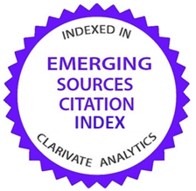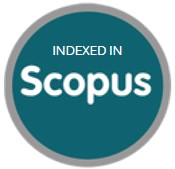Brasil y Turquía como potencias medias y regionales
Análisis comparativo de sus limitaciones y alcances
DOI:
https://doi.org/10.21830/19006586.1026Palabras clave:
geopolítica, política exterior, potencia media, potencia regional, relaciones internacionalesResumen
Con el fin de la Guerra Fría, potencias emergentes como Brasil, China, India, Rusia y Turquía han luchado por imponer una voz en la denominada gobernanza global. Como consecuencia, el sistema internacional, aunque marcado aún por una hegemonía estadounidense, parece estar cambiando. De hecho, desde principios de la década del 2000, Brasil y Turquía han incrementado su participación en la gobernanza global, hasta el punto de alcanzar cierta legitimidad como potencias medias o regionales. A fin de establecer el alcance regional y global de estos dos poderes emergentes, este artículo aborda las preguntas sobre qué factores dan cuenta de la proyección de Brasil y Turquía como potencias medias y cómo se diferencian sus trayectorias en política exterior.
Descargas
Referencias bibliográficas
BirGün Gazetesi. (2020, 12 de enero). AKP’nin 3 çocuk politikasının farkında olmadığı bir gerçek var: Artık köyde yaşamıyoruz. https://bit.ly/3mUHRaY
Burges, S. W. (2008). Consensual hegemony: Theorizing Brazilian foreign policy after the Cold War. International Relations, 22(1), 65-84. https://doi.org/10.1177/0047117807087243
Carr, H. (1946). The twenty years’ crisis, 1919-1939: An introduction to the study of international relations. Harper and Row.
Christensen, S. F. (2013). Brazil’s foreign policy priorities. Third World Quarterly, 34(2), 271-286. https://doi.org/10.1080/01436597.2013.775785
Cox, R. (1989). Middlepowermanship, Japan, and future world order. International Journal: Canada’s Journal of Global Policy Analysis, 44(4), 823-862. https://doi.org/10.1177/002070208904400405
Destradi, S. (2008). Empire, hegemony, and leadership: Developing a research framework for the study of regional powers (GIGA Working Papers 79). German Institute for Global and Area Studies. https://dx.doi.org/10.2139/ssrn.1143902
Giaccaglia, C. (2017). Poderes tradicionales, emergentes y re-emergentes: relaciones ambiguas, pero pragmáticas. Foro Internacional, 57(2), 422-459. https://doi.org/10.24201/fi.v57i2.2364
Global Fire Power. (2021a). NATO Member States Military Strength (2020). https://bit.ly/3LEdnnY
Global Fire Power. (2021b). Turkey Military Strength (2020). https://bit.ly/3FCodHj
Gratius, S. (2007). Brasil en las Américas: ¿una potencia regional pacificadora? (Documentos Fride 35). https://bit.ly/3JTcYwS
Guzzini, S. (2013). Power, realism, and constructivism. Routledge.
Hart, J. (1976). Three approaches to the measurement of power in international relations. International Organization, 30(2), 289-305. https://doi.org/10.1017/S0020818300018282
Hatakeyama, K. (2020). The Japanese middle power approach to maintaining the Asian security order: promoting a common understanding. En Between Scylla and Charybdis: Is there a Middle Path for Middle Powers in the Indo-PacificRegion? (2019 U.S. Naval War College and East Asia Security Centre Conference).
Holbraad, C. (1971). The role of middle powers. Cooperation and Conflict, 6(1), 77-90. https://doi.org/10.1177/001083677100600108
Instituto Brasileiro de Geografia e Estatística. (2021). Area [página web]. https://bit.ly/40jgiGJ
Jaramillo Jassir, M. (2021). Turquía, potencia media, regional y ¿pacificadora? La política exterior turca y la evolución constante de su identidad. Internacia: Revista de Relaciones Internacionales, 2(2), 79-101. https://bit.ly/3yMHRN4
Kim, J. (2022). Between a regional hegemon and a middle power: The case of Nigeria. En G. Abbondanza & T. Wilkins (Eds.), Awkward powers: Escaping traditional great and middle power theory. Palgrave MacMillan.
Milliyet Gazetesi. (2013, 2 de enero). Erdoğan neden 3 çocuk istediğini açıkladı? https://bit.ly/4018zNK
Ministry of Foreign Affairs (Turquía). (s.f.). Ülke Künyesi, Brezilya. https://www.mfa.gov.tr/brezilya-kunyesi.tr.mfa
Ministry of Foreign Affairs (Turquía). (s.f.). Uluslararası Kuruluşlar ve İlişkilerimiz. https://bit.ly/3liFwXa
Morales-Ruvalcaba, D. (2020). . The distribution of power in the periphery: An approach with the World Power Index. Cambridge Review of International Affairs. https://doi.org/10.1080/09557571.2020.1854178
Moravcsik, A. (1997). Taking preferences seriously: A liberal theory of international politics. International Organization, 51(4), 513-553. https://doi.org/10.1162/002081897550447
Morgenthau, H. (1986). La política entre las naciones: La lucha por el poder y la paz. GEL.
Nolte, D. (2006). Potencias regionales en la política internacional: conceptos y enfoques de análisis (GIGA Working Papers 30). German Institute for Global and Area Studies. https://bit.ly/3Fwyrco
Nye, J. S. (1990). Soft power. Foreign Policy, 80, 153-171. https://doi.org/10.2307/1148580
Nye, J. S. (2010). Soft power and cultural diplomacy. Public Diplomacy Magazine.
Olusola, O., & Okeke-Uzodike, U. (2016). Can Nigeria be Africa’s hegemon? African Security Review, 25(2), 110-128. https://doi.org/10.1080/10246029.2016.1147473
Öniş, Z., & Kutlay, M. (2017). The dynamics of emerging middle-power influence in regional and global governance: The paradoxical case of Turkey. Australian Journal of International Affairs, 71(2), 164-183. https://hdl.handle.net/20.500.11851/1816
Organski, A. F. K. (2014). Power transition. En C. Elman & M. A. Jensen (Eds.), Realism reader. Routledge.
Organski, A. F. K., & Kugler, J. (1981). The War Ledger. The University of Chicago Press.
Prys, M. (2010). The variability of regional powers. International Studies Review, 12(4). https://bit.ly/3lnKvFX
Schiavon, J. A., & Domínguez, D. (2016). Mexico, Indonesia, South Korea, Turkey, and Australia (MIKTA): Middle, regional, and constructive powers providing global governance. Asia & The Pacific Policy Studies, 3(3), 495-504. https://doi.org/10.1002/app5.148
Tissot, A. (2015). L’accord nucléaire entre le Brésil, l’Iran et la Turquie vu par New York Times et Le Monde. Les Medias: Approches Géohistoriques et Géopolitiques, 6(1), 1-10. https://doi.org/10.4000/geohist.4711
Turkstat. (2021). Coğrafi İstatistik Portalı. Consultado el 31 de agosto de 2021. https://bit.ly/3TpJKJ2
Wendt, A. (1995). Constructing international politics. International Security, 20(1), 71-81. https://doi.org/10.2307/2539217
Wood, B. (1987). Middle powers in the International System: A preliminary assessment of potential (UNU-Wider Working Papers). UNU-WIDER. http://collections.unu.edu/view/UNU:5405
World Bank Open Data. (2022a). Brazil. https://data.worldbank.org/country/brazil
World Bank Open Data. (2022b). Turkey. https://data.worldbank.org/country/turkiye
World Power Index. (s. f.). The Power of Nations [sitio web]. Consultado el 23 de abril de 2022. https://www.worldpowerindex.com
Descargas
Publicado
Cómo citar
Número
Sección
Licencia
Derechos de autor 2023 Revista Científica General José María Córdova

Esta obra está bajo una licencia internacional Creative Commons Atribución-NoComercial-SinDerivadas 4.0.

| Estadísticas de artículo | |
|---|---|
| Vistas de resúmenes | |
| Vistas de PDF | |
| Descargas de PDF | |
| Vistas de HTML | |
| Otras vistas | |
























